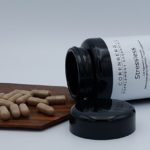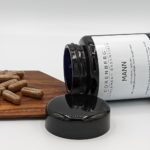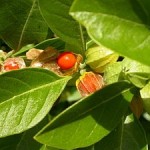
A prerequisite for the development of an infection is a temporary weakness of the immune system. The causes of such weakness can be quite different, often involving overload and stress, lack of sleep, vitamin deficiency, hormonal fluctuations, environmental toxins or even previous viral infections.
Phytopreparations from the group of adaptogens can support and re-regulate the temporarily weakened immune system. This stimulates the non-specific defense of the body.
In contrast to the production of specific antibodies against the pathogen, the non-specific defence is immediately active. The support of the immune system by adaptogens can therefore bring noticeable relief and reduce the severity of the infection, especially in the initial phase of infection.
Adaptogens support the immune system immediately
The non-specific immune system is particularly important in the initial phase of an infection. This is where adaptogens and plant immunomodulators come in:By taking it early as a precautionary measure and also at the first signs of infection, the body’s non-specific immune defences are increased, the immune system is strengthened and the course of infections can be significantly weakened and shortened.
The vast majority of all infections (estimated at about 90 percent) are detected and successfully combated by the body’s own non-specific immune defense. The so-called macrophages are the most important immune cells for the non-specific immune defence. They are available very quickly for infections and detect invading viruses and bacteria by the proteins on their surface. Macrophages are a very old part of our immune system.
The production of antibodies, which are necessary for specific immune defenses, can take up to 5 days. Only then do the antibodies become active against the invading pathogens. In contrast, the non-specific defense of the body is not antigen-oriented, thus has no memory for pathogens, but can recognize these very quickly as foreign to the body and immediately combat them.
Rhodiola rosea and Withania somnifera: Recognized Adaptogens
There are a number of plants known as immunomodulators or adaptogens that are commonly used in self-medication. Adaptogens have a normalizing effect on pathological changes in the body’s condition. They improve the adaptability of the organism to negative internal and external influences and increase the resistance. In addition, regeneration after stress is improved and recovery is promoted.
Among the most famous adaptogens are Rhodiola rosea (Rose Root) and Withania somnifera (Ashwagandha, also known as sleeping berry or winter cherry). While Rhodiola has a long tradition in Scandinavia and Siberia, Withania somnifera is a central medicinal plant in Ayurvedic medicine under the name Ashwagandha. In combination, these two purely plant-based adaptogens are a modern implementation of ancient folk medical knowledge.
Conclusion
A combination of Rhodiola rosea and Withania somnifera can slow down the course of an infection such as a flu-like infection and reduce the duration of the illness. The body’s own defence against infections is strengthened by adaptogens.
CORENBERG® Supplement Essentials is an Austrian company that provides exclusive food supplements for an active lifestyle full of energy, for stress relief, and for improved regeneration. Free express shipping EU-wide with DPD. Fast and free delivery to Switzerland, Liechtenstein and Norway.










